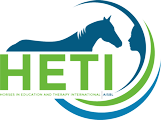Heta Rautiainen gives us an overview of what ‘Good Nutrition’ is based on current research.
In May 2020 HETI published ‘HETI Ethical Guidelines’, compiled by the HETI Ethics Taskforce. Ethical guidelines should work as a general frame and moral compass along with other quality standards and each countries’ specific laws. General guidelines have room for changing scientific and practical evidence so that they can be interpreted based on up to date knowledge, critical thinking and reflection of moral values. As an international association HETI wants to also acknowledge cultural variation in practices, resources needed for good equine care, and access to information sources.
Service providers are expected to take care that those interacting with equines hold enough knowledge and practical skills to make active efforts to improve welfare. Prevention of welfare problems will help to decrease veterinary costs, prevent injuries caused by horse’s stress responses and help to avoid developing physical and mental problems. HETI advocates the Five Provisions /Welfare Aims paradigm suggested by Professor David Mellor (2016). The Provisions aim to minimise negative experiences to a level that horses can tolerate and promote positive ones with active management practices (Mellor 2016). In addition to avoiding mental, emotional and physical harm, equines should be provided with positive experiences in their lives. The Provisions are divided into Good nutrition, Good environment, Good health, Appropriate behaviour, and Positive mental experience and “the overall objective is to provide opportunities for animals to “thrive”, not simply “survive”” (Mellor 2016). This is the first part of a series where we aim to open up these provision criteria and give some examples how these could be put into practice. In this text first provision Good Nutrition is discussed with help of nutrition literature (Martin-Rosset 2015; Ralston 2015).
